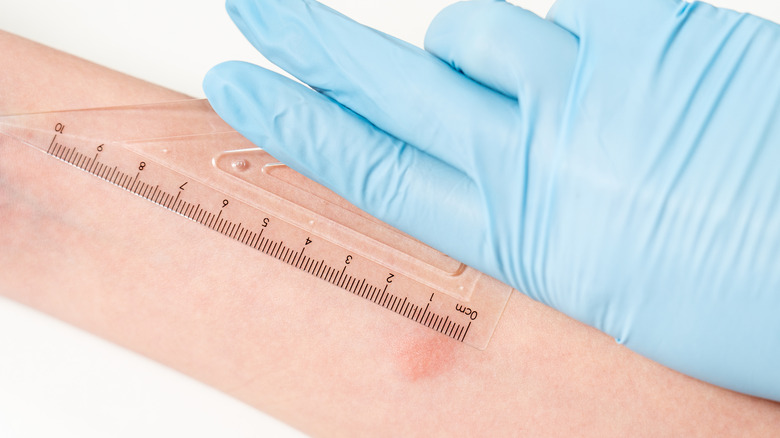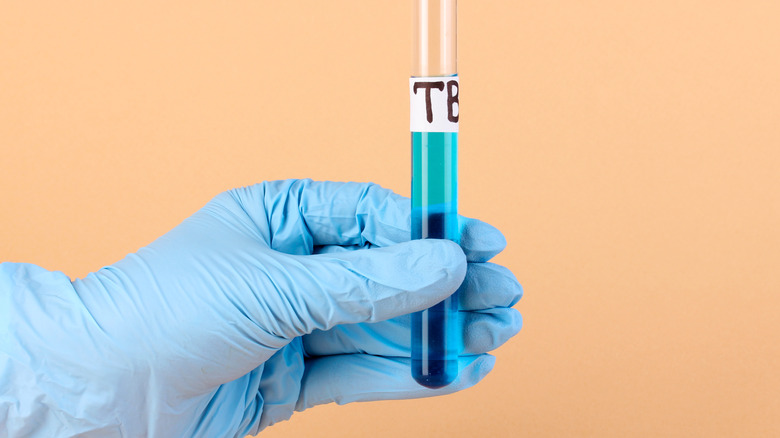Here's What To Expect From A TB Test
At some point in your life, you may be required to get a TB test by your school or employer. Since a typical test method is by an injection under the skin, it can be a little intimidating. However, knowing what to expect can help alleviate your worries and calm any fears.
TB, short for tuberculosis, is an infectious disease that's caused by bacteria and harms the lungs, according to the Mayo Clinic. It spreads easily through droplets in the air through coughing or sneezing. There are 2 forms of TB: inactive and active. The inactive (or latent) form doesn't cause any symptoms and isn't contagious, but it can turn into active TB at any point. Active TB can spread easily to others and typically results in symptoms that can include persistent coughing, coughing up blood, chest pain, weight loss, fatigue, night sweats, and loss of appetite. It can also affect other organs outside of your lungs, like the kidneys, spine, or brain.
There were 10 million new cases of TB worldwide in 2020, according to the World Health Organization (WHO). Approximately 1.5 million died from it in the same year, but the disease is treatable.
How does a TB test work?
You can test for TB through both a skin test and a blood test, though skin tests are very common, according to the U.S. Centers for Disease Control and Prevention. If you need this type of TB test, called a Mantoux tuberculin skin test, 2 visits will be required. On the first visit, a small amount of liquid called tuberculin will be injected just under the skin on the inside of your forearm. If you've been infected with the TB bacteria, your immune system will respond and cause a large area of swelling or hard bump on the skin. If there's little or no reaction, you're likely not infected. After 48-72 hours, you'll return for your second visit and a medical provider will inspect the area.
You're more likely to test positive for TB if you have a positive reaction and you have had contact with someone with TB. If you are HIV-positive, taking immunosuppressants, have recently immigrated from or lived in a country with high TB rates, live or work in a high-risk setting like a medical facility, or are under the age of 4, you may also be more susceptible, per Healthline. A positive test is usually confirmed with a chest X-ray or CT scan, and it is treatable with proper courses of medication.


